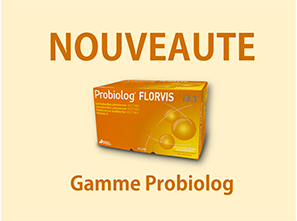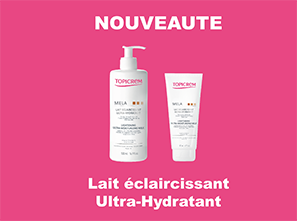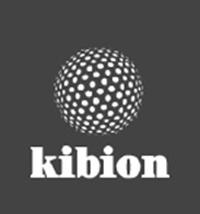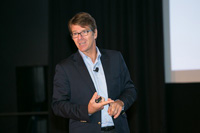Mayoly Spindler, laboratoire français, indépendant et référent en gastroentérologie est heureux de vous annoncer le lancement de son nouveau complément alimentaire, Probiolog Florvis, qui vient renforcer sa gamme Probiolog.
Topicrem, expert de l’hydratation corps est heureux de vous présenter son 1er soin éclaircissant corps inspiré de son expertise dermo-cosmétique et sa science de l’hydratation, qui respecte la beauté et la sensibilité de la peau grâce à une formule haute sécurité et haute tolérance.
Les laboratoires Mayoly Spindler innovent avec la 1ère édition de l’Académie des probiotiques, évènement national réunissant les praticiens afin de mieux comprendre les fonctions du macrobiote intestinal et les effets des probiotiques sur la santé humaine.
Didier AVENARD a exercé au préalable les fonctions de Directeur de sites industriels dans l’industrie pharmaceutiques et dans l’industrie agroalimentaire, domaines industriels qu’il connaît depuis plus de 25 ans.
Avec plus de 300 employés à Chatou, le Laboratoire Mayoly Spindler constitue une entreprise phare de l’agglomération. Ce laboratoire pharmaceutique, créé il y a plus d’un siècle, s’est imposé comme une référence dans le domaine des produits pharmaceutiques et dermatologiques.
Mayoly Spindler annonce l’arrivée le 3 avril, de Madame Clotilde Clément au poste de Directeur des Affaires Réglementaires & Pharmaceutiques et Pharmacien Responsable, membre du Comité Exécutif.
Pharmacien titulaire d’un DESS de Droit de la Santé, Clotilde Clément rejoint Mayoly Spindler à l’issue d’un parcours très complet dans l’industrie pharmaceutique, dont les dix dernières années à la tête de la Direction des Affaires Pharmaceutiques des Laboratoires Sandoz.
Membre élu de la section B du Conseil de l’Ordre des Pharmaciens, Clotilde animait la Commission des Affaires Scientifiques et Pharmaceutiques du Gemme (Association des professionnels du générique et du biosimilaire) ; Clotilde Clément dispose d’une expérience particulièrement solide des versants « Exploitant » et « Fabricant » de la responsabilité pharmaceutique.
D’après la National Pancréas Foundation, environ 100 000 patients aux États-Unis souffrent d’une EPI causée par une CP, et plus de 30 000 patients souffrent d’une EPI causée par une fibrose kystique d’après la Cystic Fibrosis Foundation.
Les patients sont actuellement traités avec des pilules de remplacement d’enzyme pancréatique porcine.
BROOKLYN, N.Y., 17 NOV. 2016 (GLOBE NEWSWIRE) ‐‐ AZURRX BIOPHARMA INC. (NASDAQ:AZRX)
(« AzurRx » ou l’« entreprise »), une entreprise spécialisée dans le développement de thérapies de protéines recombinées, non systémiques pour les troubles gastro-intestinaux a annoncé aujourd’hui en partenariat avec Mayoly Spindler, une entreprise pharmaceutique européenne, le lancement de la Phase II de l’essai clinique évaluant la sécurité et l’efficacité du MS1819-SD chez les patients souffrant d’une insuffisance pancréatique exocrine (Exocrine Pancreatic Insufficiency, EPI) causée par une pancréatite chronique (Chronic Pancreatitis, CP).
L’étude de Phase II en ouvert, à dose croissante sera menée dans deux centres en Australie
Le Royal Adelaide Hospital et le Linear Clinical Research à Perth ainsi que deux centres en Nouvelle-Zélande, P3 Research à Wellington et CCST à Christchurch.
L’étude prévoit d’enrôler environ 12 patients souffrant d’une EPI causée par une pancréatite chronique au cours des prochains mois. Le Dr Quoc Nam Ngyuen, professeur associé du département de gastroentérologie au Royal Adelaide Hospital est l’investigateur principal de cette étude.
L’objectif principal de cette étude de Phase II est d’examiner la sécurité de doses croissantes de MS1819-SD chez des patients souffrant de pancréatite chronique. L’objectif secondaire est d’examiner l’efficacité du MS1819-SD chez ces patients en analysant le coefficient d’absorption des graisses et ces changements par rapport à la référence. Les résultats initiaux de l’étude de Phase II du MS1819-SD sont attendus au cours du premier semestre 2017.
Topicrem : Meilleure crème de pharmacie en Russie
Le 18 Octobre 2016 s’est tenu la 4ème cérémonie de remise de l’Allure Russia Best of Beauty 2016. 246 marques y ont été récompensées.
De Septembre 2015 à Septembre 2016, le personnel de la rédaction du magazine Allure et des experts ont testé 1700 produits cosmétiques de différentes marques et ont sélectionné les meilleures dans chaque catégorie : visage, corps, masques pour cheveux, sérums et crèmes, produits pour le bain, produits solaires et maquillage.
Pour la première fois, notre SOS crème réparatrice corps a remporté le meilleur prix dans la catégorie «Pharma-beauty». Meilleure crème pharmaceutique, selon le magazine Allure.
Mais ce n’est pas tout !
Nous avons aussi gagné le prix HALL OF FAME, un prix spécial mettant en compétition seulement 4 produits dans la catégorie «Pharma-beauty».
Nous remercions tout le monde avec une première victoire si importante !
Allure est un magazine américain de mode et de beauté féminine, imprimé à 180 000 exemplaires. Son site web compte à ce jour 300 900 visites. Allure et Allure Best of Beauty ont une grande influence sur les produits, les innovations et les tendances avec les recommandations de plus de 60 millions de femmes.
COMMUNIQUÉ DE PRESSE
Paris, mercredi 5 octobre 2016
MAYOLY SPINDLER acquiert le laboratoire suédois KIBION et devient LEADER SUR LE MARCHÉ du dépistage et du contrôle des infections à Helicobacter pylori.
| Mayoly Spindler, laboratoire français indépendant référent en gastroentérologie et en dermo-cosmétique, poursuit son développement à l’international avec l’acquisition du jeune laboratoire suédois Kibion. Mayoly Spindler devient ainsi leader des tests respiratoires à l’urée1 utilisés pour le dépistage et le contrôle des infections par Helicobacter pylori, bactérie responsable d’ulcères et de cancers gastriques. |  |
Association of Strategic Alliance Professionals

What a CEO Wants—and Doesn’t Want—in an Alliance Executive : A Peek inside the Mind of Mayoly Spindler CEO
Posted By John W. DeWitt, Thursday, September 08, 2016
From an alliance management perspective, how you would you describe your perfect CEO? After today, I might start with the handsome, articulate, and drily witty Stéphane Thiroloix, CEO of French pharmaceutical company Mayoly Spindler. Sharing a peek inside his mind as a company leader, today’s opening plenary speaker at the 2016 ASAP BioPharma Conference in Boston at one point described himself as “an anxious maniac” who secretly wishes to avoid meetings with some partners and worries over all the details he can’t remember about other partners.
Thiroloix opened his talk by describing his humiliation at the center of an unmitigated partnering disaster. A far cry from the historic lament of partnering executives—“the C-suite has no idea what we do”—Thiroloix talked in sufficient detail to demonstrate his thorough command of the ins and outs of strategic partnering and the alliance management role. He also described how he has pushed to expand the role of alliance management in his current company, which focuses on gastroenterology and dermocosmetics. Not surprisingly, the audience was hooked from start to finish.
Thiroloix backed up his talk by a handful of spare, almost minimalist slides (except for one animated slide that, I’m not kidding, showed a fairy flying around an org chart, waving her wand and sprinkling the magic dust of alliance management across the C-suite team). For nearly an hour of presentation and Q&A, Thiroloix riveted his audience of approximately 150 alliance executives by describing the importance of what they do and how they do it—from his perspective as a CEO.
After reviewing the sweeping shift, during the past 30 years, from a highly vertical and self-contained pharmaceutical industry to the highly interdependent industry of today, he noted the truism that “we cannot get away from partnering. Today, you can’t do that, regardless of who you are—you have to partner in pretty much everything you do.” Moreover, that means CEOs need to care very much about alliance management. “This really has projected your role to a central role in what we do in the healthcare industry.”
Then Thiroloix pivoted to the heart of his presentation. “Now I’d like to focus on the other aspect—the C-suite interaction with alliance management. There are a number of things that I’ve come to expect.”
For starters, alliance management should be a “one-stop shop” for anything involving partners. “We expect you to know everything about the partnership—if you don’t, who will?” he asked. “I don’t know everything about our partners and I develop anxiety about that. The only way to relieve that anxiety is to talk to you. It’s technically important [to provide this knowledge] and also an interesting element of career dynamics. This is about reassuring the C-suite.”
Indeed, he described in detail his expectations of “support for my team. We want to be informed, prompted and supported, and coordinated. I expect you to keep my team on the right page of that book, and help them to contribute to the health of that alliance.”
One of Thiroloix’s most powerful points then came when he described his perspective on importance of advocating for the partner—demonstrating just how clearly he sees the nuances of alliance management and its pivotal role in partnering success.
“I expect the alliance manager to put herself at risk at some point for the partner. Any C-suite will paint the picture the color they need it,” he explained. “The role of the alliance manager is to tell us, ‘you can’t do this because our partner is actually expecting the opposite,’ and to overcome the natural bias of executive committees.” As he did throughout his talk, Thiroloix then dug a layer deeper, explaining what he called a “survival skill” for alliance execs when they are advocating for the partner:
“Make sure you are clear it’s your opinion versus painting the picture for the partner. I expect the alliance manager to tell me, ‘Stéphane, this is how our partner sees it,’ then say, ‘I think they’re wrong and might be open to changing their minds,’ or, ‘I think they’re right and we need to change our approach.’”
He also emphasized the importance of telling senior leadership what they need to know about partners to do their jobs—but not what you might want them to know about your job and what it takes to do it.
“Alliance managers are same as everyone else standing in front of senior management,” he admonished. “We all tend to go over the whole story about every one of our partnerships when we get a little bit of ear time—but don’t do that, we know how hard you work. The C-suite doesn’t understand the job, the complexity—but they understand the need for this type of job.”











